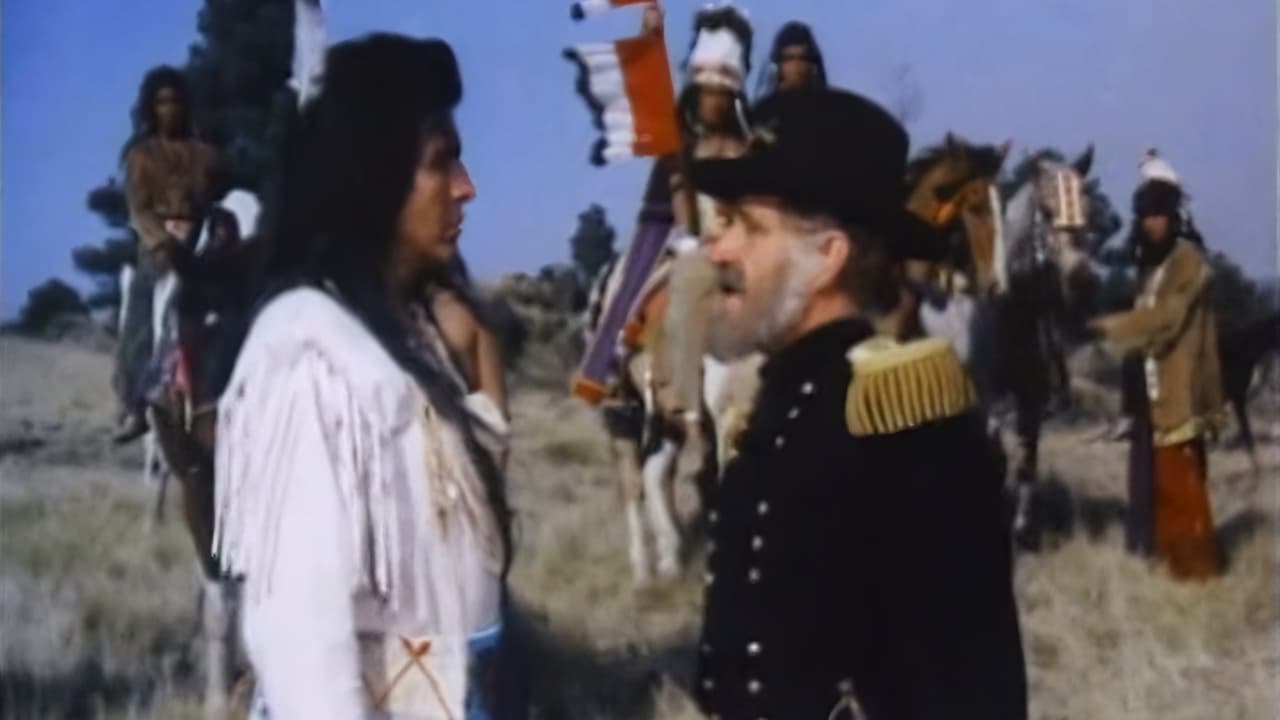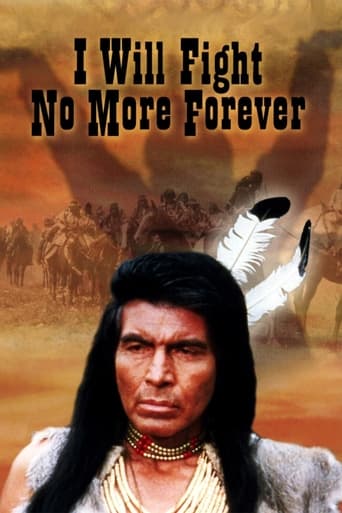

Two years before producing "Roots", David Wolper turned out another fine production for TV. The Emmy-nominated "I Will Fight No More Forever" looks at Chief Joseph of the Nez Perce. Joseph led the resistance to the US's seizure of indigenous land. A general with whom Joseph was friendly told the Nez Perce to move to a reservation in Idaho. Joseph tried to move his people to safety, but due to the US army's superior weaponry and the lack of help from other groups of Indians, the Nez Perce eventually gave up fighting and Joseph made his famous pronouncement.It was appropriate that this movie aired during the time of the American Indian Movement. Indeed, it was in 1975 that Leonard Peltier got arrested. This was one of the many productions - whether for cinema or TV - that said that the US was finally taking a critical look at its history. Ned Romero turns in a fine performance as Joseph, as do James Whitmore as the general and Sam Elliott as his captain. I recommend it.
... View MoreThis is a great rendition of the true story of the noble-yet-futile struggle of Chief Joseph and the Nez Perce to retain their independence and tribal life. At one poignant moment, General Howard (in an amazing portrayal by James Whitmore) intones gravely to his Colonel (memorably portrayed by Sam Elliott), "Read Your History." Then, he continues, the weak are always conquered and subjugated by the strong. The colonel retorts that when the strong become immoral, the day will come that they cease to be strong. This was true in 1877, and the parallels between our self-righteous, duplicitous and brutal behavior then and now are frighteningly similar to today's America. Ned Romero does a great job of conveying the nobility, leadership, and tactical brilliance of Chief Joseph. And the native American actors who play the other Nez Perce are uniformly terrific. This excellent movie should not be missed.
... View MoreI have seen this movie in 1978 for the first time and it has moved and inspired me a lot. Its plain and simple authenticity, its well-structured plot, its reliance on Joseph's best oratory and the excellent performances of the players who mostly do without histrionics have struck me at first sight and still do so. I will show this movie again tonight to a course of my college students who study Native American history and Indian oratory and customs to deepen their cross-cultural understanding and I am sure that they will be amazed again as quite a lot of other courses before. I can truly recommend this movie to anyone who really cares about historical truth and high-quality cinematography. Dieter Seidensticker, Bielefeld, Germany
... View MoreThis movie is one of my favorites because Chief Joseph is one of my favorite men in history. Here was a man possessed with great intelligence and character. He led his people and suffered great loss. This film shows the inhumanity of man to his fellow man and how one truly great man can rise the the occasion of greatness in the middle of great danger. An excellent film to watch.
... View More